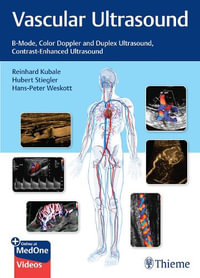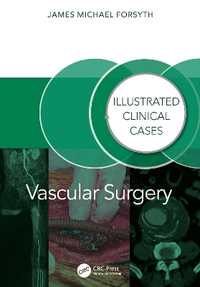A highly pragmatic and down to earth guide to the "real-world" of vascular surgery, written to help trainees pass the FRCS (Vasc) examination first time around, hopefully with flying colours! Through clear and concise chapters, a review of relevant vascular surgery papers, a solid grounding in up-to-date and relevant UK and European guidelines, and mock examination questions, this book should give candidates a fighting chance at exam success.
Using his early experience, and insight gained from senior consultant vascular surgeons and mentors, author James Forsyth dispenses both facts and pearls of wisdom as he takes the prospective vascular surgeon through the core topics pertinent to a day one vascular consultant.
This guide specifically covers:
- "Building a strong foundation" with a focus on patient counseling, presentation skills, clear documentation, professionalism, and a foundational grasp of the key evidence-base for vascular surgery
-
- "Core vascular surgery topics" from chronic limb threatening ischaemia to aortoiliac aneurysms to symptomatic carotid artery disease to chronic venous disease
-
- Pragmatic guide to the "bread & butter" vascular surgery operations
-
- Fifty mock SBA assessment questions and answers, and numerous mock FRCS short and long cases that are blended into reality-based discussions to draw out key learning points
This book is essential to any budding vascular surgeon intending to sit the FRCS (Vasc) examinations, and those who are about to start off as real day one consultant vascular surgeons. Indeed, the FRCS (Vasc) examination is a bridge to becoming a true consultant vascular surgeon, and this book therefore is a "must-read" for anyone looking to cross that bridge.
Industry Reviews
"The author succeeds in producing a highly concise and contemporary text for the intended audience of senior vascular surgery trainees in the U.K. or Ireland. Vascular surgery trainees and other physicians outside of this region may benefit from the clinical content though to a lesser degree given the differences in training paradigms. This book is highly useful in compiling critical knowledge within an examination context. Though not a replacement for more encyclopedic texts, the book will likely be highly useful to its intended audience and provides the author's unique and personal insight." - Calvin Chao MD, Northwestern University
























